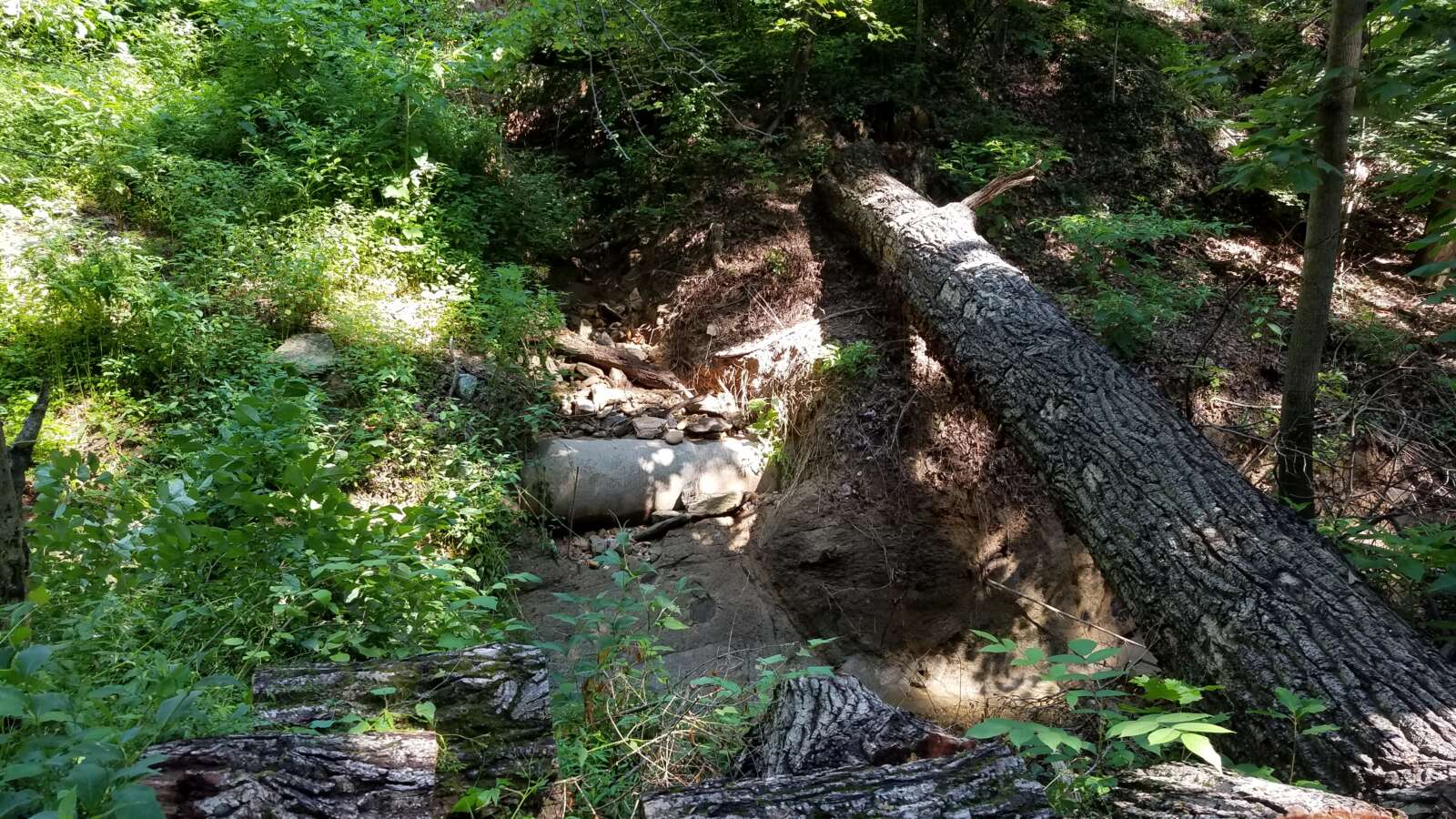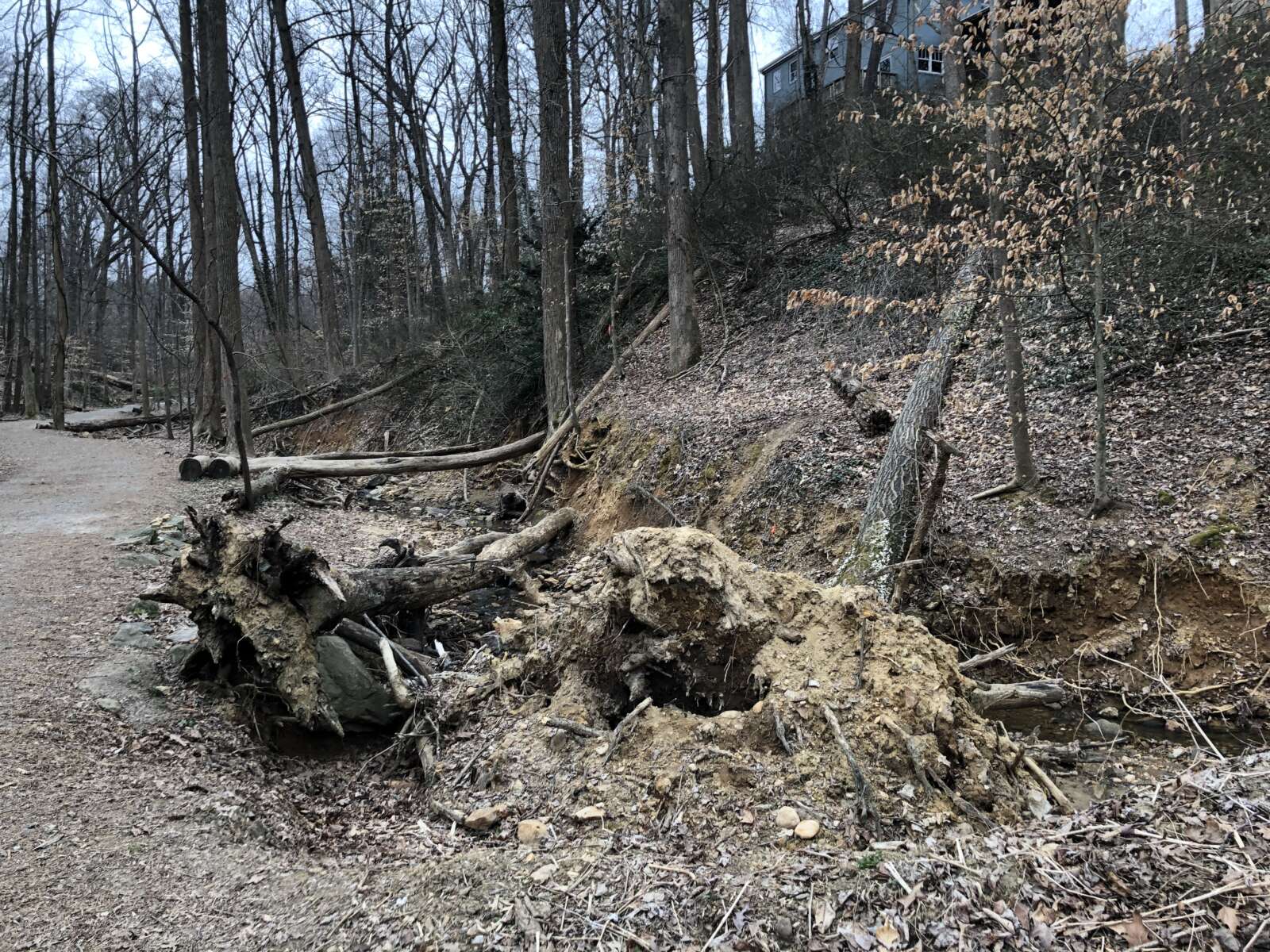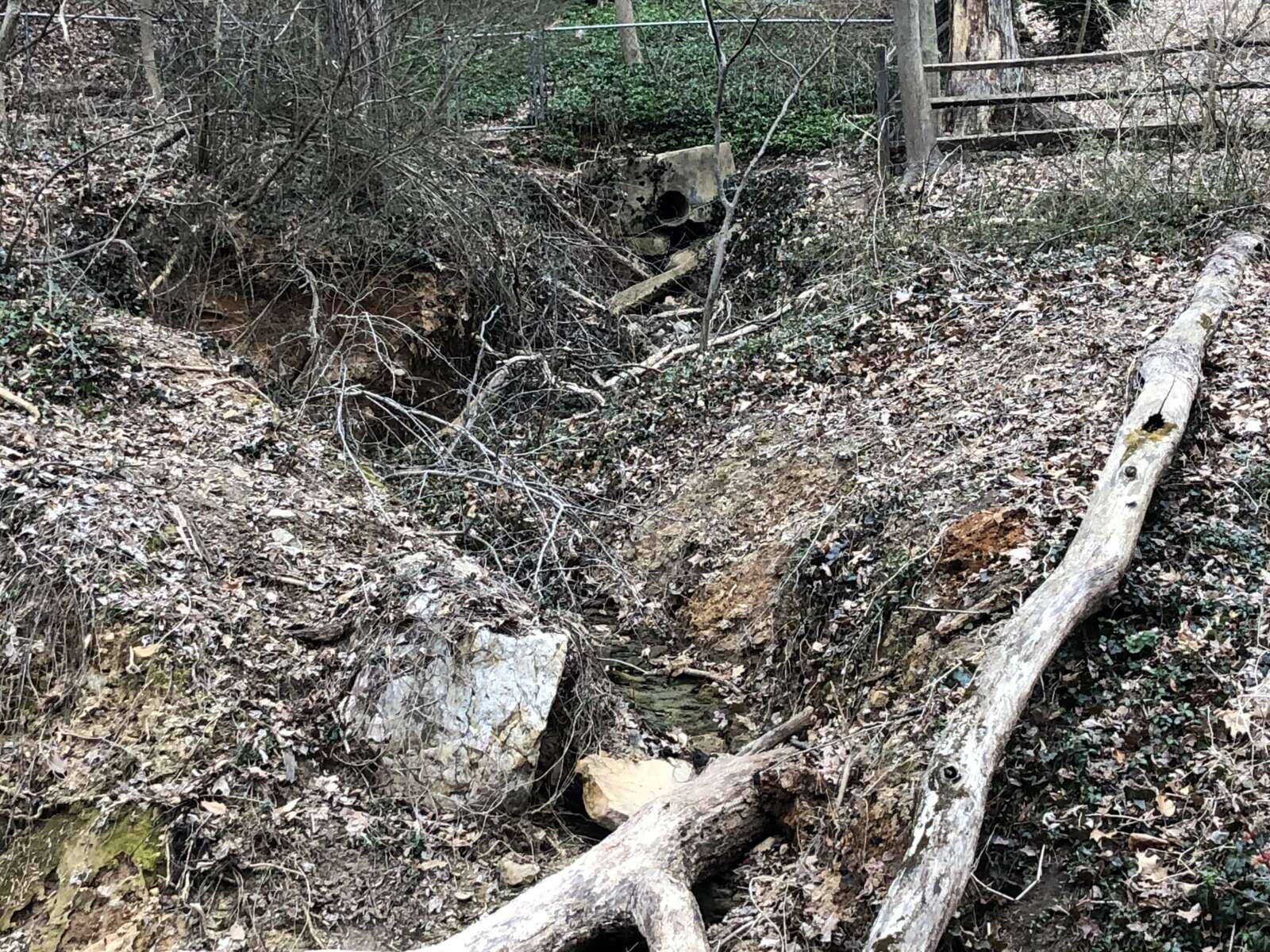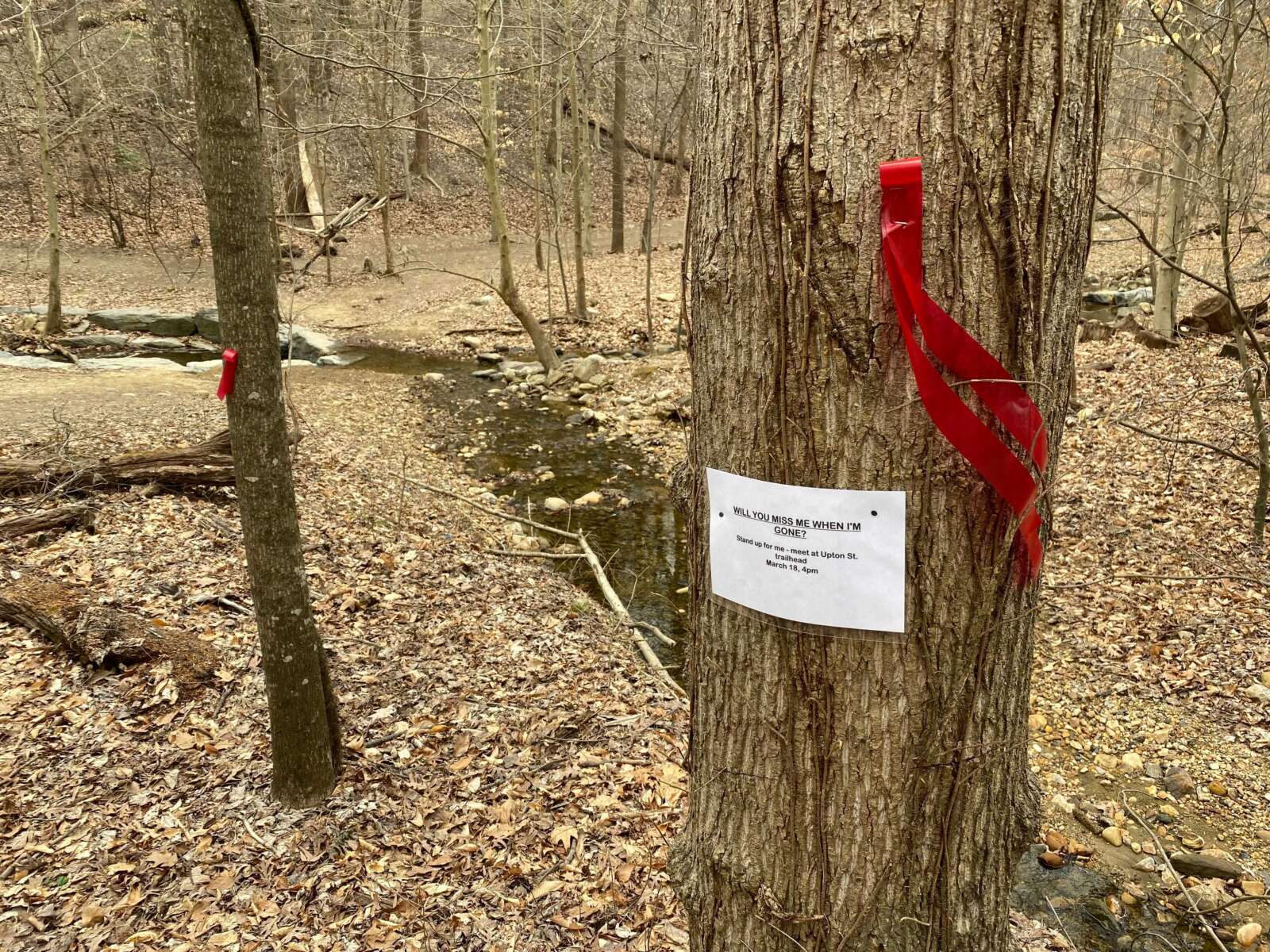(Updated at 4:30 p.m.) Arlington County is moving forward with a project to restore Donaldson Run Tributary B despite some vocal public opposition.
On Tuesday, the County Board voted 4-1 to award a $1.5 million contract to restore a segment of the stream beginning at N. Upton Street and extending about 1,400 feet downstream to where it meets with Donaldson Run Tributary A in Zachary Taylor Park. Takis Karantonis cast the dissenting vote.
The vote came after a handful of locals criticized the proposed project for sacrificing trees, as well as allegedly misusing taxpayer dollars and ignoring changing scientific opinions.
With the vote, the county will use an approach similar to the one taken in 2006 to restore Donaldson Run Tributary A.
The project will address “critical infrastructure, public safety and environmental threats,” the county said. It “will stabilize the stream’s eroding banks to protect existing stream valley infrastructure, including the threatened water main and sanitary sewer, which crosses the stream and runs parallel to it.”
Staff said 83 trees will be axed as part of the project, which has been in the works since 2004.
Board Chair Matt de Ferranti told public speakers he agreed with many of their points but he is ultimately supporting what county staff recommended.
“We need to work on impervious cover and climate change but we also lost more than 20 trees since 2017 due to some of the washout that has come,” he said.
Critics weren’t convinced.
The restoration of Tributary A “failed miserably,” said Rod Simmons, who said he worked on the project and argued that it actually made flooding and runoff worse. Those recommending a different solution say theirs is cheaper, less intensive, and will save more trees.
“I am heart-sick at the devastation of the Donaldson Run ecosystem that will result from this project but I am even more distressed at the systemic discounting of the importance and integrated nature of the unique ecosystems in Arlington such as Donaldson Run,” said Mary Glass, a local resident. “For more than a decade, concerned citizens have provided valuable information on the adverse impact of this project and constructive alternatives to reach the same results…It’s a shame that despite all of this, no significant modification has occurred.”
Karantonis argued that the area needs restoration but 83 felled trees is too high a price.
“I don’t think we did everything we could to minimize impact,” he said.
But Jason Papacosma, the watershed programs manager for Arlington County, said the method suggested by the advocates is not applicable to the “very high-energy environment” of Donaldson Run.
“The flows are severe, the slopes are steep and the velocities are high, so you need a corresponding design that can handle that,” he said. “The [other] approach seems geared to lower-energy, less-constrained systems.”
Additionally, erosion along Tributary B is dumping sediment into Tributary A, so restoring the former will improve conditions for the latter, Papacosma said.
Since the project received funding in 2007, erosion and storm damage, including the July 2019 flash flood, have gouged out the banks, uncovering a 30″ water main and a sanitary sewer line, which triggered emergency repairs. The water main, if compromised, would impact 20,000 residents.
In the 15 years, something else eroded, too, Board member Katie Cristol said.
“Time has allowed more damage to the stream and more degradation in our civic dialogue on it,” she said. “I don’t think it’s an excuse for the tenor and really accusatory language that we heard tonight from folks but I do understand the frustration and exhaustion as this has worn on.”
One speaker at the meeting went so far as to compare the county moving forward with the project, despite the environmental concerns of residents in the largely affluent part of Arlington, to systemic racism.
Cristol and Karantonis, though casting opposing votes, agreed that the project has taken too long, embittering locals and pitting experts against each other.
“This happens when projects like this take ages to come to contract,” Karantonis said.
The approval was one of a handful given last night to flood resiliency and stormwater projects. Others include an agreement with Arlington Public Schools to build a stormwater detention vault under the new Reed Elementary School’s future athletic fields to alleviate flooding in the Westover area and an agreement with the City of Alexandria to dredge a portion of Four Mile Run.







